09 Aug2019
By Jacqueline Rodriguez
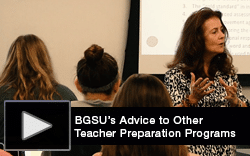 The key to developing the Bowling Green State University (BGSU) dual licensure program is reaching out to the local area to ensure the program is built with the local needs at the forefront. “The local data is how the university can drive change,” recalls a district leader. Faculty also believe collaboration with the district is central to their mission and their success with candidates. Making connections with the field office and the supervising teachers ensured faculty could relate what candidates were seeing in the field to what they were learning in their coursework.
The key to developing the Bowling Green State University (BGSU) dual licensure program is reaching out to the local area to ensure the program is built with the local needs at the forefront. “The local data is how the university can drive change,” recalls a district leader. Faculty also believe collaboration with the district is central to their mission and their success with candidates. Making connections with the field office and the supervising teachers ensured faculty could relate what candidates were seeing in the field to what they were learning in their coursework.
University systems must also be taken into consideration, especially when working across colleges and across departments. Two questions drove the BGSU program leadership as they developed their dual licensure program: What is best for our students in this program? An what is best for this program? One significant concern was finding strong clinical placements for each teacher candidate. The success of a program with hundreds of teacher candidates rested with strong clinical partnerships.
Finally, serving all students that walk into the classroom was the priority when developing the dual licensure program at BGSU. “This wasn’t an experiment, this is the way BGSU does business,” reflected a faculty member. It was a choice to move away from single licensure that, over time, changes the makeup of the district teaching population, which is why district leaders were involved at every step in the program development.
To learn more, watch the Advice to Others video highlighting BGSU’s Models of Inclusive Clinical Teacher Preparation, part of AACTE’s Research-to-Practice Spotlight Series.
09 Aug2019
By Rebekah Saylors
This article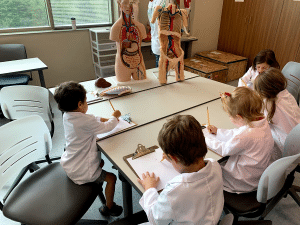 and photo originally appeared in Appalachian Today and are reprinted with permission.
and photo originally appeared in Appalachian Today and are reprinted with permission.
It began with a curiosity of wanting to know more about the human body and culminated with a poster presentation. No, this is not a research project designed by one of Appalachian State University’s senior science majors. The 3D project was completed by some of the university’s youngest Mountaineers at the Lucy Brock Child Development Lab School (LBCDLS).
In late June, the LBCDLS preschool class shared with Appalachian faculty, staff, students and practicum students, as well as family and friends, the knowledge they gained about the human body through the project. Some examples of what they shared:
- A song they wrote with Emily Wills ’19, a graduate student in Appalachian’s master’s music therapy program from Salt Lake City, Utah.
- Life-size tracings of their own bodies, which included their drawings of bones and organs.
- A large, mixed media sculpture of the human body consisting of recycled materials, which was created by the class as a collaborative project.
The health science project provided a reciprocal learning opportunity — broadening the inquiring minds of young scientists while giving Appalachian’s budding educators a front-row seat from which to study
09 Aug2019
By Lindsay Tuman
This article originally appeared on Fox 8 News and is reprinted with permission.
The Guilford County School District is getting more teachers with the help of a new program.
Guilford County Schools, High Point University and North Carolina A & T State University partnered together for the Teacher Quality Partnership. It’s a federal grant that helps get highly qualified teachers into high-needs schools.
The grant awards more than $4 million to get 25 participants into an accelerated program. In this program, they will learn what they need to be an effective teacher while applying the skills simultaneously in their own classroom with the help of a mentor.
“I never thought I would be in the classroom. People have been telling me for years, ‘Oh, you’d be a great teacher,’” Rashida Queen, one of the
09 Aug2019
By Deborah Koolbeck

The U.S. Department of Education launched an Experimental Sites Initiative focused on the Federal Work Study (FWS) program. FWS is a need-based federal program that provides part-time jobs to students to supplement the financial assistance received from the Federal Pell Grant program and other aid sources. The Experimental Site Initiative for FWS waives several of the statutory and regulatory provisions, including that which would limit the number of hours a student could work, permitting full-time opportunities.
05 Aug2019
By Katrina Norfleet
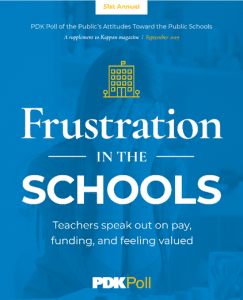 Half of public school teachers have seriously considered leaving the profession in the past few years. Only about half say their community values them a great deal or a good amount, and a majority says that, given the opportunity, they’d vote to go on strike for higher pay, according to the 51st edition of the annual PDK Poll of the Public’s Attitudes Toward the Public Schools released on August 5.
Half of public school teachers have seriously considered leaving the profession in the past few years. Only about half say their community values them a great deal or a good amount, and a majority says that, given the opportunity, they’d vote to go on strike for higher pay, according to the 51st edition of the annual PDK Poll of the Public’s Attitudes Toward the Public Schools released on August 5.
The full results of the PDK Poll are compiled in a report titled Frustration in the schools: Teachers speak out on pay, funding, and feeling valued. This year’s poll has several new features: For the first time in 20 years, PDK included a survey of public school teachers alongside the survey of the general population. They also expanded its sample size by breaking out Asian adults in addition to Black, White, and Hispanic adults. This year, online focus groups of public school parents and public school teachers were included to better understand why Americans responded as they did to the poll questions.
Other notable poll results include the following:
05 Aug2019
By Lynn M. Gangone
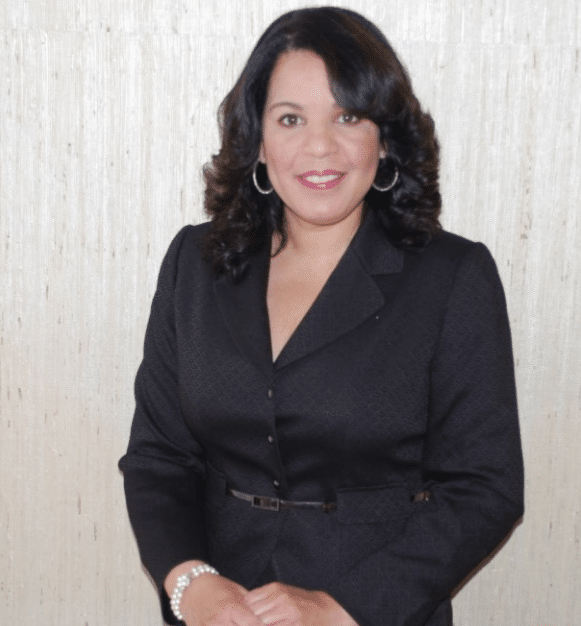 I am excited to welcome Leslie T. Fenwick, Ph.D. who will serve as the first AACTE dean in residence at the National Office beginning this month. I invite you to join me in welcoming her to the AACTE team as we enhance our services to meet the current needs of deans leading colleges of education. Leslie is dean emeritus of the Howard University School of Education and a tenured professor of educational policy and leadership. In a short interview, she took time to share her perspectives about her new role by providing responses to the following questions.
I am excited to welcome Leslie T. Fenwick, Ph.D. who will serve as the first AACTE dean in residence at the National Office beginning this month. I invite you to join me in welcoming her to the AACTE team as we enhance our services to meet the current needs of deans leading colleges of education. Leslie is dean emeritus of the Howard University School of Education and a tenured professor of educational policy and leadership. In a short interview, she took time to share her perspectives about her new role by providing responses to the following questions.
What is your vision for the new role as the AACTE dean in residence?
I’m so invigorated by AACTE’s new vision statement to collaborate with its members and partners to revolutionize education for all learners. What a gift to be part of AACTE as it launches in this direction at this particular time, when our PK-12 public schools are the most diverse the nation has ever seen. What will it take to revolutionize education for this new generation of students who are more likely to be bilingual, kids of color, and from families experiencing
05 Aug2019
By Jane E. West

This blog post is written by AACTE consultant Jane West and is intended to provide update information. The views expressed in this post do not necessarily reflect the views of AACTE.
The Senate left town yesterday following on the heels of the House bringing the five-week summer recess into full bloom. Congress will reconvene in September, and thanks to the passage of the budget deal, move forward in adopting 12 appropriations bills, including one with education spending. However, obstacles remain.
02 Aug2019
By Deborah Koolbeck
Did you miss the July 2019 Federal Update webinar? Not to worry! The recording and the slides are now available on the federal page of the AACTE Advocacy Center for AACTE members to access.
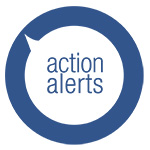
Be sure to sign up for the AACTE Action Alerts to make your voice heard with members of Congress as the appropriations season continues to unfold now that the Bipartisan Budget Agreement for Fiscal Years 2020 and 2021 has been sent to President Trump for his signature. Review the bill here and listen to the webinar recordings to learn more about its impact on education funding.
The AACTE Federal Update webinars will take a hiatus in August, so stay tuned for the next webinars in September. Remember, AACTE currently offers the update twice each month in the same week; one on Tuesday evening at 5:00 p.m. EDT and one on Wednesday morning at 11:00 a.m. EDT. Registration details for the AACTE webinars in September will be available soon.
AACTE wants to hear from you! Is there another format that you would like to receive a monthly federal update? If so, please email me at dkoolbeck@aacte.org and let me know what format you recommend. Thank you!
02 Aug2019
By Katrina Norfleet

AACTE joins the Learning First Alliance (LFA) and other national education groups in planning for Public Schools Week 2020, February 24 – 28. Next year will mark the third annual LFA Public Schools Week, designated for administrators, teachers, specialists, teacher educators, parents and school board members to host events for their communities and reach out to lawmakers, businesses, and other community members to discuss the importance of public education.
As a partnering organization, AACTE recognizes that teachers, principals, and support staff who serve in public schools are key to helping students succeed and our nation thrive, and invites members to
01 Aug2019
By Jacqueline Rodriguez
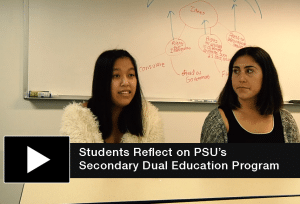 A number of students in Portland State University’s (PSU) Secondary Dual Education Program (SPED) recently reflected on advice they were given before entering the graduate program. “I always want more education than less,” one teacher candidate was advised by a mentor in the field of medicine. The candidate now looks back on her experience in the program with appreciation. “I was ready. I had the resources. I had been in the classroom for two years; it felt natural. I didn’t have the same level of trepidation as some of my first year friends.”
A number of students in Portland State University’s (PSU) Secondary Dual Education Program (SPED) recently reflected on advice they were given before entering the graduate program. “I always want more education than less,” one teacher candidate was advised by a mentor in the field of medicine. The candidate now looks back on her experience in the program with appreciation. “I was ready. I had the resources. I had been in the classroom for two years; it felt natural. I didn’t have the same level of trepidation as some of my first year friends.”
The students who complete the PSU program graduate with a dual endorsement in a secondary education content area and special education. Another candidate reflected on the importance of serving every student in the classroom. His decision to pursue a two-year graduate program in secondary English and special education was an obvious one; it ensured he would be prepared to meet the needs of all students with a range of abilities.
The benefit of being profession-ready is not only valued by the teacher candidates. High school students also note the tremendous advantage they have when a teacher who understands the unique needs of students with IEPs is leading the classroom. In particular, college access traditionally has been stymied for students with significant disabilities. However, one high school student reflected that she has a mentor in her teacher, someone who has guided her toward college-ready curriculum. Learning from their students is another area of mutual benefit expressed by the candidates. The necessity to meet the needs of each student in the classroom is universally acknowledged by candidates, students, and administrators.
To learn more, view the What’s in it for me? video highlighting PSU’s Secondary Dual Education program, part of AACTE’s Research-to-Practice Spotlight Series.
31 Jul2019
By Diane Angelucci
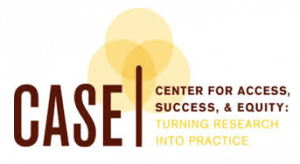 This article originally appeared in Rowan Today and is reprinted with permission.
This article originally appeared in Rowan Today and is reprinted with permission.
Even in the best school districts, obstacles to equal education and opportunities can hide far below the surface
To help districts unearth and address these issues, the Center for Access, Success and Equity (CASE) in Rowan University’s College of Education has forged equity-focused research practice partnerships with several school districts—one of CASE’s three research areas. CASE is establishing research as central to the College of Education in three ways — through partnerships with districts, through grant-funded research, and through the College’s Ph.D. program.
“I can’t speak enough about our experience with CASE,” said Piera Gravenor, superintendent of Delsea Regional School District, which has worked with CASE for the last two years.
31 Jul2019
By Katrina Norfleet
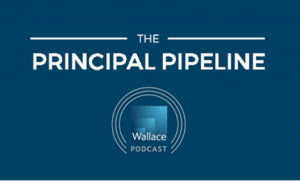 The Wallace Foundation has launched Series Two of The Principal Pipeline podcast with it seventh episode, A District Strategy to Improve Student Achievement. The episode features Linda Chen, chief academic officer for the New York City public schools, and Susan Gates, co-principal investigator of the Principal Pipelines: A Feasible, Affordable, and Effective Way for Districts to Improve Schools study. Chen and Gates walk listeners through important findings on student outcomes and their significance. Also spotlighted in the podcast is Wanda Luz Vazquez, a New York City principal, who discusses her experience as a “pipeline” principal.
The Wallace Foundation has launched Series Two of The Principal Pipeline podcast with it seventh episode, A District Strategy to Improve Student Achievement. The episode features Linda Chen, chief academic officer for the New York City public schools, and Susan Gates, co-principal investigator of the Principal Pipelines: A Feasible, Affordable, and Effective Way for Districts to Improve Schools study. Chen and Gates walk listeners through important findings on student outcomes and their significance. Also spotlighted in the podcast is Wanda Luz Vazquez, a New York City principal, who discusses her experience as a “pipeline” principal.
“It is true that a principal has to do everything under the sun,” said Chen, “But, at the end of the day, the purpose is to advance learning and instruction for every student and that is what we really focus our efforts on.”
The Principal Pipeline podcast features principals, district and state leaders, and university officials who have developed strong principal pipelines and are eager to share their lessons learned with the broader field. While Series One explored how these efforts proved to be feasible and affordable in six large school districts, Series Two examines the effectiveness of building principal pipelines. New episodes are released every Wednesday.
View the full list of podcast episodes, and learn more about the Wallace Foundation principal pipeline strategy.
31 Jul2019
By Charles Tocci, Terri Pigott and Ann Marie Ryan
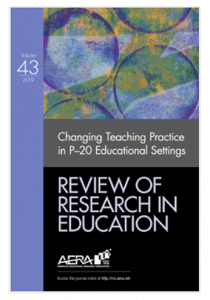 Untold amounts of time and money are invested in making changes to teaching practice, often with the best intentions and limited ideas about how to actually pull it off. In early May, the Woodrow Wilson Foundation announced a major new initiative to change the way American history is taught across the country. The Foundation argues that it is a failure of teaching that two out of three Americans cannot pass the U.S. citizenship exam. Accordingly, its new “American History Initiative” will include an online platform for professional development, lessons, and interactive learning materials as well as expanded teacher fellowships and research on curriculum. It is a sizable, much needed, and laudable investment of resources in history education. However, one key question remains: Why do they think this will work?
Untold amounts of time and money are invested in making changes to teaching practice, often with the best intentions and limited ideas about how to actually pull it off. In early May, the Woodrow Wilson Foundation announced a major new initiative to change the way American history is taught across the country. The Foundation argues that it is a failure of teaching that two out of three Americans cannot pass the U.S. citizenship exam. Accordingly, its new “American History Initiative” will include an online platform for professional development, lessons, and interactive learning materials as well as expanded teacher fellowships and research on curriculum. It is a sizable, much needed, and laudable investment of resources in history education. However, one key question remains: Why do they think this will work?
30 Jul2019
By Jerrica Thurman
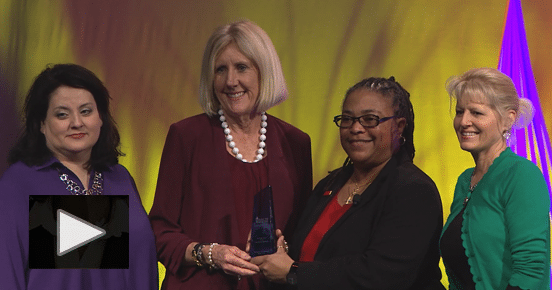
AACTE is committed to recognizing excellence in educator preparation through its prestigious annual Awards Program. Among the nine categories of awards, the Best Practice Award for the Innovative Use of Technology honors AACTE members that infuse technology throughout their curriculum in an innovative way. AACTE’s Committee on Innovation and Technology sponsors this award and selects a school, college, or department of education that uses technologies to stretch beyond standard practices in teacher education.
The video above features AACTE member institution Northeastern State University’s (NSU) College of Education, the 2018 recipient of the Best Practice Award for the Innovative Use of Technology. Dean Vanessa Anton explains how NSU’s Robotics Academy of Critical Engagement (RACE) program works and why it received the award.
29 Jul2019
By Jerrica Thurman
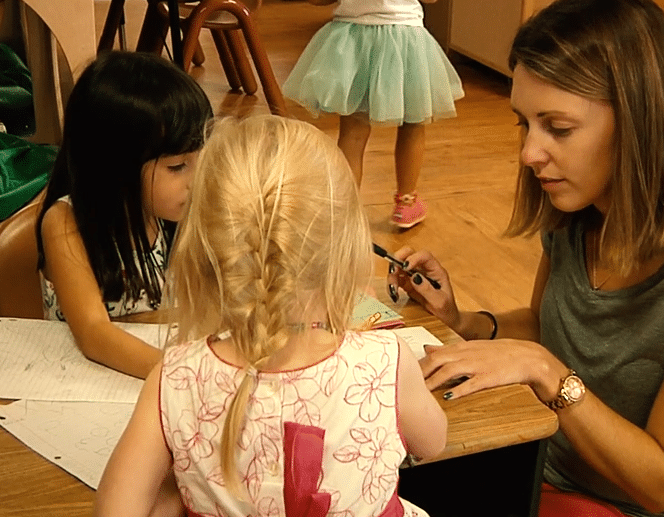 Developing and sustaining partnerships with local school districts are critical to the success of the Bowling Green State University (BGSU) Inclusive Early Childhood (IEC) program. Superintendents who work with BGSU assert that all parties need to understand the challenges each school district and university face and must be willing to bridge the gap between research and clinical practice together. BGSU’s teacher candidates are deployed for clinical practice in special education at local schools including in rural areas.
Developing and sustaining partnerships with local school districts are critical to the success of the Bowling Green State University (BGSU) Inclusive Early Childhood (IEC) program. Superintendents who work with BGSU assert that all parties need to understand the challenges each school district and university face and must be willing to bridge the gap between research and clinical practice together. BGSU’s teacher candidates are deployed for clinical practice in special education at local schools including in rural areas.
“One of the pieces that works really well for us is that all of the people working in the education department at the university are parents themselves of students in our district so there’s a vested interest,” said Francis Scruci, superintendent of Bowling Green City Schools. “I think there’s a mutual respect. We certainly respect what the university does and I think they respect what we’re trying to do at the K-12 level and we understand the challenges that both of us face. We are willing to bridge that gap and try to help each other become successful.”
BGSU’s overall objective is to prepare graduates of the IEC program to teach young children with and without disabilities in inclusive settings. The IEC program blends the best practices from early childhood education with early childhood special education. It addresses the knowledge, skills, and values necessary to meet the needs of each child. Graduates of the program are prepared to provide differentiated, evidence-based instruction to young children from birth through grade 3.
To learn more, watch the Developing and Sustaining Partnerships video highlighting BGSU’s Models of Inclusive Clinical Teacher Preparation, part of AACTE’s Research-to-Practice Spotlight Series.
 The key to developing the Bowling Green State University (BGSU) dual licensure program is reaching out to the local area to ensure the program is built with the local needs at the forefront. “The local data is how the university can drive change,” recalls a district leader. Faculty also believe collaboration with the district is central to their mission and their success with candidates. Making connections with the field office and the supervising teachers ensured faculty could relate what candidates were seeing in the field to what they were learning in their coursework.
The key to developing the Bowling Green State University (BGSU) dual licensure program is reaching out to the local area to ensure the program is built with the local needs at the forefront. “The local data is how the university can drive change,” recalls a district leader. Faculty also believe collaboration with the district is central to their mission and their success with candidates. Making connections with the field office and the supervising teachers ensured faculty could relate what candidates were seeing in the field to what they were learning in their coursework.

 and photo originally appeared in
and photo originally appeared in 
 Half of public school teachers have seriously considered leaving the profession in the past few years. Only about half say their community values them a great deal or a good amount, and a majority says that, given the opportunity, they’d vote to go on strike for higher pay, according to the 51st edition of the annual PDK Poll of the Public’s Attitudes Toward the Public Schools released on August 5.
Half of public school teachers have seriously considered leaving the profession in the past few years. Only about half say their community values them a great deal or a good amount, and a majority says that, given the opportunity, they’d vote to go on strike for higher pay, according to the 51st edition of the annual PDK Poll of the Public’s Attitudes Toward the Public Schools released on August 5. I am excited to welcome Leslie T. Fenwick, Ph.D. who will serve as the first AACTE dean in residence at the National Office beginning this month. I invite you to join me in welcoming her to the AACTE team as we enhance our services to meet the current needs of deans leading colleges of education. Leslie is dean emeritus of the Howard University School of Education and a tenured professor of educational policy and leadership. In a short interview, she took time to share her perspectives about her new role by providing responses to the following questions.
I am excited to welcome Leslie T. Fenwick, Ph.D. who will serve as the first AACTE dean in residence at the National Office beginning this month. I invite you to join me in welcoming her to the AACTE team as we enhance our services to meet the current needs of deans leading colleges of education. Leslie is dean emeritus of the Howard University School of Education and a tenured professor of educational policy and leadership. In a short interview, she took time to share her perspectives about her new role by providing responses to the following questions. 


 This article originally appeared in
This article originally appeared in  The Wallace Foundation has launched Series Two of The Principal Pipeline podcast with it seventh episode,
The Wallace Foundation has launched Series Two of The Principal Pipeline podcast with it seventh episode,  Untold amounts of time and money are invested in making changes to teaching practice, often with the best intentions and limited ideas about how to actually pull it off. In early May, the
Untold amounts of time and money are invested in making changes to teaching practice, often with the best intentions and limited ideas about how to actually pull it off. In early May, the 
